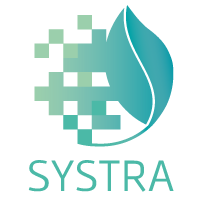Actor strategies for dealing with sector coupling and technology competition: how do organizations position themselves and how does this influence the system transitioan?
This project sheds light on actors and agency in multi-technology
interaction in the road freight transport sector. The research on
sustainability transitions has focused more on actors and agency over the last
years but a research gap remains regarding actors’ roles between supporting and
opposing technologies and larger transitions (Fischer & Newig, 2016).
Additionally, the technologies that such actors deal with are not isolated
entities but exist in interaction with other technologies – a fact that has only
been recently addressed in research on multi-technology interaction (Andersen
& Markard, 2019).
However, this research so far does not address the societal or political aspects, which influence and are in turn affected by such technology interactions (Andersen & Markard, 2019). Earlier single technology studies with an actor focus provide the theoretical grounding around societal and political aspects for the project, with a central focus on the concepts of expectations, strategies, and framing.
The empirical
case for this study are competing alternative drives in the transport sector.
Actors with high stakes in this sector, such as policymakers and companies (as
both producers and users), need to make sense of the current multi-technology
landscape, including battery-electric vehicles, hydrogen and fuel cell
vehicles, (synthetic) gas vehicles, and catenary trucks, and are developing
different strategies to manage this reality and position themselves. In this
project, the case of synthetic methane in freight transport serves as a
starting point to analyse actor behaviour towards interactions between
different alternative drives and towards the sector coupling between the energy
and gas system.
Based
on a media analysis and interviews, the project analyses which strategies
regulators, producers, and users use to deal with multiple technologies and why
they choose these strategies. Organizations can, for example, strategically
support and frame some technologies while dismissing others and thereby shape the
societal perceptions of these technologies. Insights into such dynamics in the
social construction of technology can feed into policy and industry
recommendations for the transport transition. Reality is more complex and
inter-connected than the single-technology focus, which has dominated research
so far. Through this project, this realization is further supplemented with an
actor-centred view.

